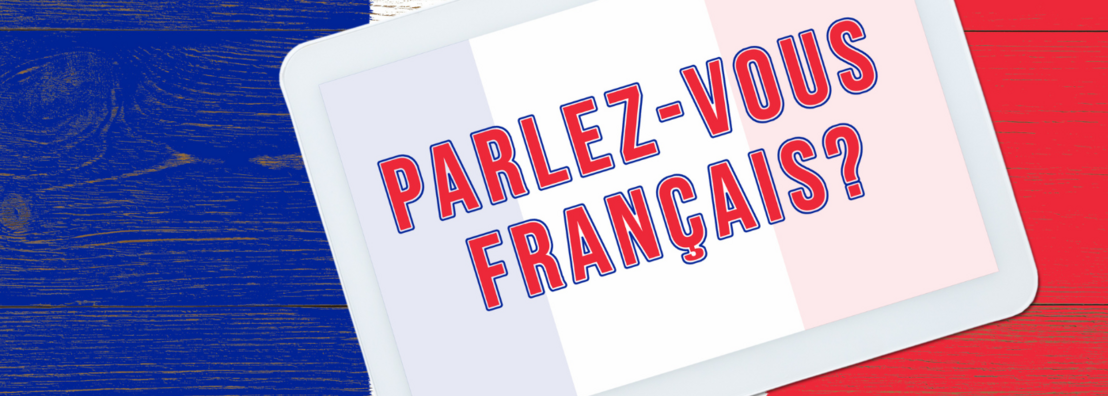Verbs to use while speaking French: Conjugation and Examples

Learn French on language trip
Improve your French on your language study trip to France or Canada.
Verbs to speak in French: How do you say it?
The verb to talk in French translates, very simply, to "parler". This incredible similarity with the Italian language is due to the fact that both are Romance languages, meaning that they derive directly from Latin.
It is not the first nor the last time that we will find similarities between dictionaries: just think of words coma amour, musique and livre, which remain practically identical even in Italian and which we can translate automatically, even without in-depth knowledge of the language .
This already simplifies our life a lot when it comes to learning the language: in short, we are already at an advantage.
Furthermore, another advantage that distinguishes the verb speak in French is that it belongs to the regular verbs of the first conjugation, which end in "-ER".
This means, therefore, that it follows the conjugation without any particular changes.
There is certainly no shortage of irregular verbs in French grammar, but fortunately for us, parler is not one of them: therefore, the endings that it will gradually acquire in its conjugation will be those typical of the conjugation itself, without complicating our life.
Conjugation of the verb to speak in French
Having said that, we just have to delve deeper into the conjugation of the verb to speak in French and discover how it behaves in all the moods and verb tenses of the language, which are quite a few.
Since it is a regular conjugation, there is no need for you to learn it by heart: you just need to know the corresponding endings of the first conjugation to be able to form the various tenses in the various persons, singular or plural.
Let us therefore begin to explore the conjugation of the verb parler, starting from the manner
Indicative
personne | présent | imparfait | passé simple | passé composé | plus-que-parfait | passé antérieur |
je | parle | parlais | parlai | ai parlé | avais parlé | eus parlé |
tu | parles | parlais | parlas | as parlé | avais parlé | eus parlé |
il / elle | parle | parlait | parla | a parlé | avait parlé | eut parlé |
nous | parlons | parlions | parlâmes | avons parlé | avions parlé | eûmes parlé
|
vous | parlez | parliez | parlâtes | avez parlé | aviez parlé | eûtes parlé
|
ils / elles | parlent | parlaient | parlèrent | ont parlé | avaient parlé | eurent parlé |
futur | futur antérieur |
parlerai | aurais parlé |
parleras | auras parlé |
parlera | aurait parlé |
parlerons | aurons parlé |
parlerez | aurez parlé |
parleront | auront parlé |
Learn French with Sprachcaffe
Want to learn French and have an amazing cultural experience with us? Join us on our language trips to learn French in Paris, Nice and Rabat and dive into the mesmerising culture of the countries.
Subjunctive
personne | présent | imparfait | passé simple | plus-que-parfait |
je | parle | parlais | parlai | avais parlé |
tu | parles | parlais | parlas | avais parlé |
il/ elle | parle | parlait | parla | avait parlé |
nous | parlons | parlions | parlâmes | avions parlé |
vous | parlez | parliez | parlâtes | aviez parlé |
ils / elles | parlent | parlaient | parlèrent | avaient parlé |
You may have noticed that some forms of the subjunctive are identical to some forms of the indicative mood, such as the first person present tense:
- je parle → I speak(indicative)
- je parle → that I speak(subjunctive)
How can you tell the difference in cases like this? Simply, you will need to know how to analyze the context. Based on what is said in the rest of the sentence, you will be able to understand whether it is one verb form or the other.
For example:
Je parle français tous les jours. → I speak French everyday.
- Il est important que je parle français couramment. → It is important that I speak French regularly.
As you can see, the context - and, often, the subordinating conjunction "que" - will tell you whether it is indicative or subjunctive.
Conditional
personne | présent | passé |
je | parlerais | aurais parlé |
tu | parlerais | aurais parlé |
il / elle | parlerait | aurait parlé |
nous | parlerions | aurions parlé |
vous | parleriez | auriez parlé |
ils / elles | parleraient | auraient parlé |
Want to learn French online? Check out our online French guide on our website and learn everything there is to learn, from Grammar to Vocabulary.
Imperative
personne | impératif |
je | - |
tu | parle |
il / elle | - |
nous | parlons |
vous | parlez |
ils / elles | - |
The infinite of parler is, of course, parler.
As regards the participle, we have the form "parlant" in the present and "parlé" in the past. Furthermore, we have already been able to see the latter in use in the compound forms of the other verb moods and tenses.
Conjugation and example sentences
Now that we know the verb to speak in French in all its possible forms, all we have to do is see it in action! Let's insert it into some contexts to discover how it behaves within a sentence, learn to recognize it and become familiar with its conjugation.
- Nous avons parlé de nos projets d'avenir. → We talked about our projects for the future.
- Elle a parlé avec lui hier. → She talked to him yesterday.
- Ils ont parlé de leurs rêves. → They talked about their dreams.
- Je parle français. → I speak French.
- Tu parleras à ta mère plus tard. → You will talk to your mother later.
- Ils parlent de politique. → They talk about politics.
- Tu as parlé à ta sœur ? → Did you talk to your sister?
- Vous parlerez à votre professeur ? → You'll talk to your teacher?
- Nous parlons de nos vacances passées. → We talk about our past holidays.
- Il/Elle parlera de son voyage. → He/She will talk about his/her trip.
- Vous avez parlé de votre travail ? → You talked about your work?
- Il/Elle parle avec son ami. → He/She talks with his/her friend.
- Tu parles beaucoup. → You talk a lot.
- Ils/Elles parlent de leurs expériences. → They talk about their experiences.
- Je parlerai avec toi demain. → I will speak with you tomorrow
In conclusion, mastering the appropriate verbs is pivotal for effective communication in French. This article has explored a diverse range of verbs, from essential conjugations to nuanced expressions, equipping readers with the tools to express themselves accurately and fluently. By understanding the nuances and context behind each verb choice, learners can elevate their proficiency in French conversation, unlocking a world of expression and connection. With practice and dedication, harnessing the power of verbs will undoubtedly enrich both linguistic competence and cultural appreciation for the French language.




